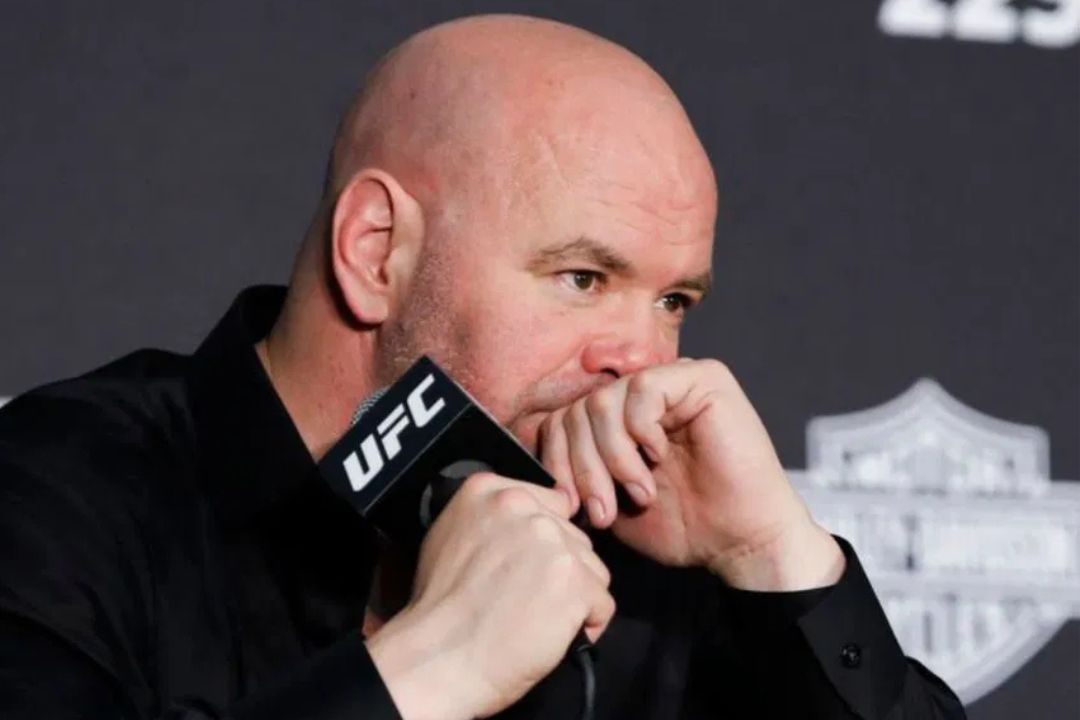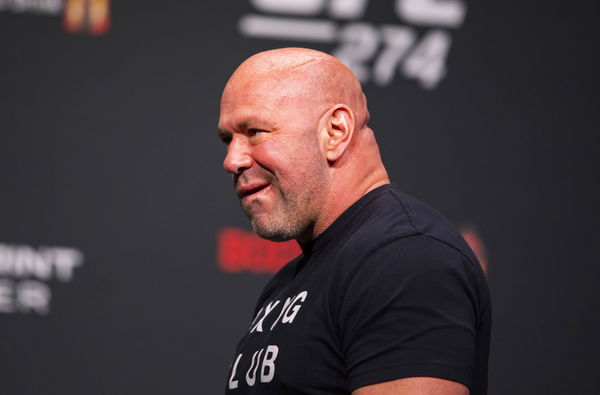

Memories are still fresh. Almost everyone had only one thing in mind—the Canelo vs. Crawford showdown. Yes, almost. Because Sean Zittel had other thoughts. A sobering question from the well-known boxing reporter now arguably defines the buildup to the era’s biggest fight. The whole boxing world was on tenterhooks. Seemingly irking Dana White, whose Zuffa Boxing promoted the super bout, Zittel sought some clarification on the proposed amendments to the Muhammad Ali Reform Act during their press conference. Backed by TKO, which owns UFC and WWE, it aims to introduce a few features in the regulation with the new act—’Muhammad Ali American Boxing Revival Act’.
Watch What’s Trending Now!
However, many believe the new act could jeopardize the original act’s biggest objective—to protect fighters’ interests. Now, days later, a fresh twist seems to have thickened the plot. And it involves one of boxing’s own. Reports suggest Tom Brown, whose TGB Promotions has worked alongside Al Haymon’s PBC to promote many of Gervonta Davis and Canelo Alvarez‘s fights, apparently extended his support to the Ali Act amendments. But any joy for Dana White and others was short-lived, as a setback promptly followed. The veteran promoter’s endorsement should not be construed as a wholehearted agreement, either, it appears.
ADVERTISEMENT
Gervonta Davis’ promoter rethinks approach
“Spoke to Tom Brown about letter to Congress supporting Ali Act changes & UBOs,” eminent boxing journalist Dan Rafael tweeted sometime ago. According to the award-winning writer, Tom Brown seems to agree with a few aspects of the proposed changes, such as health and safety.
ADVERTISEMENT
Spoke to Tom Brown about letter to Congress supporting Ali Act changes & UBOs. There are aspects he supports (health/safety) but said thought about UBO & wanted to clairfy: Still favors sanctioning body model. Thinks UBO might be good for club level guys but not for elite boxers. https://t.co/aSwPaz0C2C
— Dan Rafael (@DanRafael1) September 25, 2025
But he expressed doubts over the Unified Boxing Organizations (UBO)—the key feature of the TKO-backed recommendation that has sparked a major debate. “But said thought about UBO & wanted to clarify: Still favors sanctioning body model. Thinks UBO might be good for club-level guys but not for elite boxers,” Rafael revealed.
ADVERTISEMENT
Rafael’s update followed an earlier post, where he expressed his thoughts in the simplest of ways—a thumbs-down emoji. He was reacting to one of combat sports’ most eminent voices, John S. Nash, who shared a picture of Tom Brown’s letter, which was surprisingly not signed and dated November 5.
In the wake of the UFC’s antitrust settlement, the move to amend the Ali Act has gained quite a lot of significance.
ADVERTISEMENT
The changes backed by Dana White that are contentious
According to the available documents, it primarily aims to provide increased choice and opportunity to professional boxers by allowing them options to participate in the alternative system offered by a unified boxing organization (UBO). Further, it promises to enhance safety precautions that protect the well-being of professional boxers.
ADVERTISEMENT

Imago
Image credits: Imago
So in that regard, some of its recommendations, such as a national minimum payment of $150 per round, national minimum health coverage amounting to $25,000, and mandatory medical testing, including MRIs, EKGs, pregnancy tests, and drug testing, appear to have been well received.
But the concerns surrounding unified boxing organizations linger.
ADVERTISEMENT
So the proposed change to the Ali Act would allow promoters to use a different model. Instead of the traditional requirements, such as independent rankings, third-party sanctioning, and transparency, a promotion could create its own Unified Boxing Organization and still be considered compliant. A UBO, like UFC’s self-run model in MMA, could run its own rankings, award and control its own belts, and do its own matchmaking. As long as it ticks boxes for fighter health, safety, and pay, it could bypass outside oversight.
Why critics don’t like it is because they see it as a legal loophole that undermines the original intent of the Ali Act. Critics say this would give one company (like Zuffa/UFC) too much unchecked power over a fighter’s career.
ADVERTISEMENT
Fans should stay tuned as further developments emerge in the days to come.
What’s your take on Tom Brown’s views?
ADVERTISEMENT
ADVERTISEMENT
ADVERTISEMENT